Summary
- Ukraine reports numerous Russian drone attacks after Putin’s three-day truce ends
- Volodymyr Zelensky says Ukraine is ready to meet Putin for ceasefire talks, adding Russia’s consideration of ending the war is a “positive sign”
- Kyiv “expects Russia to confirm a ceasefire – full, lasting, and reliable – starting tomorrow”, the Ukrainian president says
- Meanwhile, Vladimir Putin calls for “direct talks” with Ukraine on 15 May, hours after European leaders met in Kyiv to demand a 30-day ceasefire
- Donald Trump sees a breakthrough but Ukraine and Russia remain very far apart, our security correspondent Frank Gardner writes
- Ukraine reports numerous Russian drone attacks after Putin’s three-day truce ends
A tale of two proposals
The 30-day ceasefire proposal isn’t exactly hot off the press – the US floated it back in March – but over the last few days, it has been given a fresh lease of life.
Yesterday, European leaders including the UK’s Keir Starmer, France’s Emmanuel Macron, Germany’s Friedrich Merz and Poland’s Donald Tusk had one message for Russia: agree to an unconditionaltruce, to be implemented from Monday,or face “new and massive” sanctions.
Putin’s response? He held a late-night news conference, where he avoided giving a clear response, offering instead his own counter-proposal: direct talks with Ukraine in Turkey next Thursday.
Ukraine’s reply was clear: ceasefire first, talks later.
All eyes are now on tomorrow to see whether Russia and Ukraine will actually pause the fighting.
US Secretary of State Marco Rubio says he’s off to Turkey around the time of Putin’s proposed meeting, joining an informal gathering of Nato foreign ministers. On the agenda: ending the Russia-Ukraine war.
What will happen to the war after all this? After three years of relentless fighting, it’s tempting to believe nothing will change and the fighting just drags on. But there’s also a chance we’re on the brink of something big.
Donald Trump certainly thinks so, posting on Truth Social: “A BIG week upcoming!”
What’s the latest?
Let’s have a look at what’s happened today so far:
- President Donald Trump has posted that he wants to see an end to the “bloodbath” between Russia and Ukraine
- Ukrainian President Volodymyr Zelensky has called on Russia to commit to a full ceasefire, starting tomorrow, before possible talks between the two sides
- It’s a call echoed by several world leaders including Germany’s Friedrich Merz, France’s Emmanuel Macron, and Keir Starmer, external, who says a ceasefire “creates the space for talks”
- Pope Leo XIV has called for “no more war” in his first Sunday message to crowds in St Peter’s Square
- Turkish President Recep Tayyip Erdogan has told Putin and other leaders he’s “ready to host the negotiations”
- US Secretary of State Marco Rubio will visit Turkey next week around the date on which Putin is proposing to hold the talks
- Meanwhile it appears fighting continues, with both sides accusing the other of breaking the 8 to 10 May truce
The West must show it means business – Ukrainian MP

Ukrainian MP Kira Rudik tells the BBC that she is sceptical about President Vladimir Putin’s offer of “direct talks” saying that Russia hasn’t ever given “one single sign” of wanting to end the war.
She also accuses Russia of continuing to target Ukrainian soldiers during Friday’s VE Day parade in Moscow’s Red Square despite Putin imposing a three-day ceasefire.
Rudik goes on to claim that Putin’s early hours address was only motivated by a desire to regain the initiative, to move forward on his own terms and she calls on Western allies to stand firm.
“Once you take out a knife in a fight you need to go ahead and to show Russia that the West means business.”
She says Ukraine must be supported with arms, adding: “Putin wants everyone to play his game.”
Putin’s offer of talks may be attempt to divide the US and Europe
Reuters
We’ve seen it before: Vladimir Putin doesn’t react well to ultimatums. We saw it again, last night, in the Kremlin.
President Putin slammed European powers for talking to Russia “in a boorish manner and with the help of ultimatums”.
He didn’t go into detail. He didn’t need to.
This was clearly his response to the ultimatum set by European leaders in Kyiv.
They had warned Moscow that if Russia didn’t agree to an unconditional 30-day ceasefire from Monday, there will be more sanctions against Russia and more military assistance for Ukraine.
On Saturday, Sir Keir Starmer said that “if he [Putin] is serious about peace, then he has a chance to show it”.
The Kremlin’s response: we’re serious, but we’ll show it our way.
Putin’s way (his counter proposal) is direct talks with Ukraine in Istanbul next Thursday.
But, crucially, no immediate ceasefire.
So, is the Kremlin’s offer a serious peace initiative? Or is it simply an attempt by Moscow to play for time and to prolong the war? And, with this proposal, might Russia also be trying to split the Western coalition that is backing Ukraine?
Zelensky aide thanks Pope for concern for Ukrainians
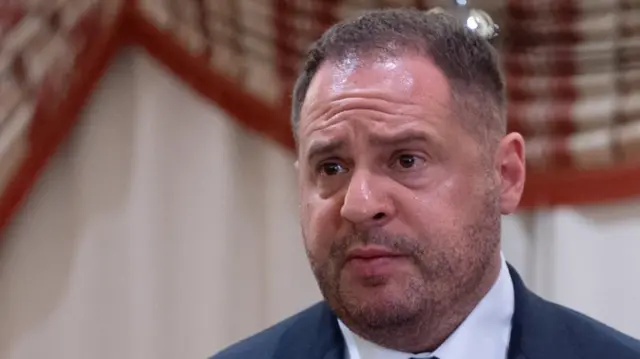
As we reported earlier, Pope Leo XIV has called for an “authentic and lasting peace” in Ukraine in his first Sunday message to worshippers since his election last Thursday.
The Pope said: “I carry in my heart the suffering of the beloved Ukrainian people,” and urged that “every effort be made to reach a true, just, and lasting peace as soon as possible”.
Andriy Yermak, a key aide to Ukraine’s President Zelensky, thanked the Pope for his support, adding: “The war must end, the fire must cease, and all prisoners and children abducted by Russia must return home.”
“For now, there is only one person who doesn’t want this to happen. But Russia must stop all of it,” Yermak says.
One of the few Nato members that maintained ties with Russia
Turkey is the one member of the Nato alliance who has maintained the closest relationshi with Russia throughout the invasion of Ukraine. Presidents Erdogan and Putin, both strongmen in power for over two decades, have always maintained a good relationship.
Last December he was quoted by Russia’s Tass news agency as saying they were “the only leaders left” in world politics.
Despite that, Turkey remains a part of the Western military alliance, having offered military support to Ukraine, most notably their celebrated Bayraktar drones.
In short, it feels like relatively neutral territory for both sides.
In March, Turkey’s defence ministry said that it could contribute to a potential peacekeeping mission in Ukraine, if a ceasefire is declared. If that is to be achieved, it will most likely be in the city where east meets west.
‘A historic turning point’ where east meets west?
If talks are to take place between Russia and Ukraine, it seems Istanbul will be the venue.
President Recep Tayyip Erdogan said that “Turkey is ready to host negotiations aimed at achieving a lasting solution” and that “a window of opportunity has opened for reaching peace”.
It would not be the first time the city had played host to negotiations between Russia and Ukraine, with varying degrees of success. In March 2022, the last talks between the two sides, demonstrably ended in failure.
Then there was the Black Sea grain initiative, negotiated in July 2022 with Turkish and UN backing, as a way of ensuring that Ukraine grain could be transported, alongside increased Russian agricultural exports. For around a year it had some success, before eventually collapsing with Russia’s withdrawal.
So, why is Istanbul once again being suggested as the venue for talks? It is a combination of geography and geopolitics.
Istanbul sits on the Bosphorus straight, connecting the Black Sea with the wider world. Under the Montreux convention, signed in 1936, Turkey oversees all maritime traffic conducted by both countries, giving it a vital role in the region.
Rubio to travel to Turkey for informal Nato meeting

US Secretary of State Marco Rubio will visit Turkey from 14 to 16 May for a informal meeting of Nato foreign ministers, according to the US Department of State.
The talks will focus on security priorities for the alliance, including boosting allied defence investment and ending the Russia-Ukraine war, the statement says.
The visit will take place around the date on which Russia’s President Vladimir Putin is proposing to hold “direct talks” with Ukraine in the country.
What are the ‘root causes’ of the war as Putin sees them?
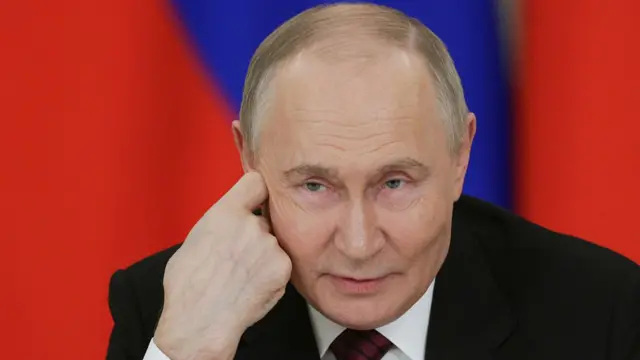
This isn’t the first time Russia has talked about the “root causes” of the war.
Ever since the US suggested a 30-day ceasefire in March, President Vladimir Putin has repeatedly said long-standing concerns need to be dealt with first.
When the Russian president talks about “root causes”, he means the idea that Ukraine’s existence as a sovereign state is somehow a threat to Russia’s security as well as his concerns over Nato’s expansion.
‘Ceasefire first, then talks – not the other way around,’ Trump’s special envoy says
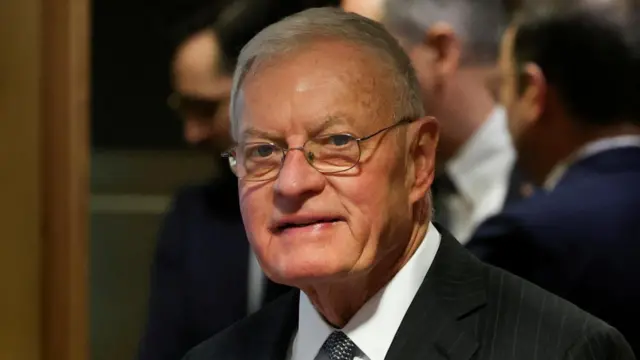
Trump’s special envoy to Ukraine has spoken out after Vladimir Putin proposed holding “direct talks” with Ukraine on Thursday.
Retweeting the New Zealander PM’s support for a 30-day ceasefire, Kellogg says: “Even the Prime Minister of New Zealand gets it. As President Trump has repeatedly said, stop the killing!!
“An unconditional 30-day ceasefire first and, during it, move into comprehensive peace discussions. Not the other way around.”
Putin hasn’t rejected the 30-day ceasefire proposal, but his counter-offer of talks appears to be a no without directly saying so, according to our Russia editor’s analysis.
Russia’s foreign ministry spokesperson Maria Zakharova also says that Putin wants negotiations about the “root causes” of the conflict to happen before any ceasefire can take place.
Putin’s call for talks a ‘window of opportunity for reaching peace’, Erdogan says
Turkish President Recep Tayyip Erdogan has voiced Ankara’s readiness to host ceasefire talks between Russia and Ukraine in a phone call with Russian President Vladimir Putin, the Turkish presidency said on X on 11 May.
Putin had earlier called for “direct talks” with Ukraine on 15 May in Istanbul, while Ukrainian President Volodymyr Zelensky said Kyiv is “ready to meet” and expects Moscow to “confirm a ceasefire – full, lasting, and reliable”, starting on 12 May.
Erdogan told Putin that his statement was “welcomed” and that “Turkey is ready to host the negotiations that will ensure reaching a permanent solution,” the presidency said.
He added that a “window of opportunity opened for reaching peace” and a “comprehensive ceasefire will create the necessary environment for peace talks”.
Erdogan also spoke with French President Emmanuel Macron on 11 May, voicing Ankara’s readiness to “offer any contribution, including hosting negotiations for a ceasefire and lasting peace”.
Trump sees breakthrough, but Ukraine and Russia remain very far apart
There are two battles going on in this war.
The one with bombs, drones and missiles, and the public relations one to prove just which side is the obstacle to peace.
President Putin has responded to Western leaders’ demands for a 30-day ceasefire with a counter-offer.
No ceasefire but instead, direct talks with Ukraine in Turkey next week about what he, Vladimir Putin, considers to be the root causes of this war. That would include Ukraine’s ambitions to join the Nato.
President Trump, who has previously hinted at imposing punitive sanctions on an intransigent Russia, has welcomed Putin’s offer.
Writing on his Truth Social platform, he hailed what he sees as an imminent breakthrough in this war.
But the reality is, Russia and Ukraine remain very far apart on just how to end it.
Russian response ‘far from sufficient’ says German Chancellor Merz
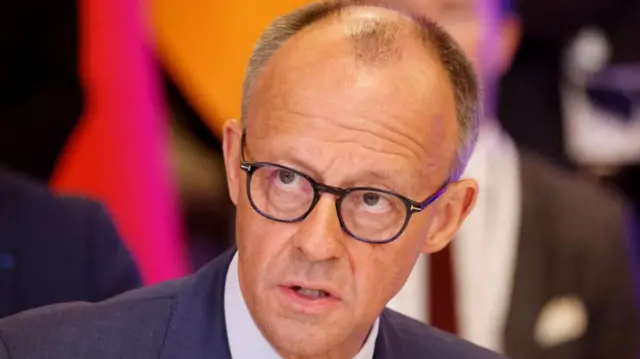
German Chancellor Friedrich Merz calls President Putin’s offer to hold talks with Ukraine “far from sufficient”.
Posting on X, external, he says Russia’s willingness to talk is a “good sign” but says European leaders expect Moscow to agree to a ceasefire.
“First, the guns must fall silent before talks can begin.”
‘The world is waiting for a decision on ceasefire’ – Poland’s PM
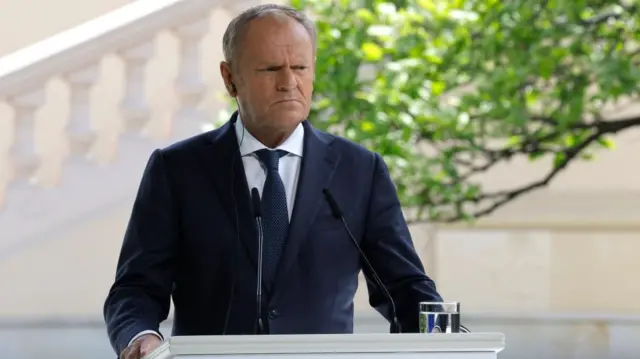
We’re now hearing from Poland’s Prime Minister Donald Tusk who has responded to Putin’s proposal for direct talks with Ukraine.
Tusk was in Kyiv yesterday to meet Ukrainian President Zelensky alongside European leaders.
Writing on X today, he repeats the call for Russia to agree to a 30-day unconditional ceasefire starting tomorrow.
“In response to our appeal, the Russians have proposed peace talks starting May 15. The world, however, іs waiting for univocal decision on an immediate and unconditional ceasefire.
“Ukraine is ready. No more victims!” he says in a social media post.
Putin’s proposal shows ‘real intention’ for peace – Dmitry Peskov
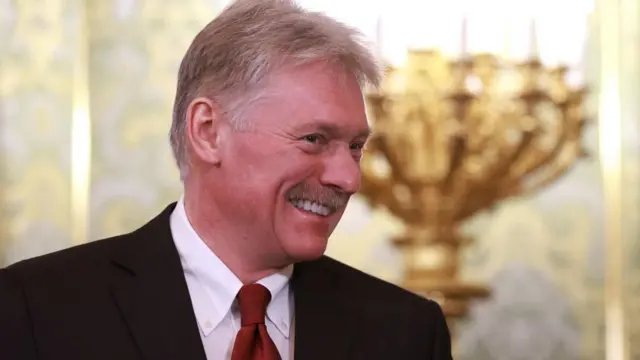
Earlier this morning, Kremlin spokesman Dmitry Peskov said Putin’s proposal for talks shows the Russian president has a “real intention” to find a peaceful solution.
According to Russia’s state-owned news agency Tass, external, Peskov tells Russian media Channel One that Putin’s statement is a very serious proposal for peace, and that peace can only be achieved through serious negotiations.
Serious talks would require significant shifts in both sides’ positions
To say there is little that Moscow and Kyiv agree on would be an understatement in the extreme.
One of the key issues is the status of the Ukrainian territory that Russia occupies.
Some, like the Crimean Peninsula and parts of the Eastern Donetsk and Luhansk regions, were taken by Russia’s so called “little green men” in 2014.
The rest, including parts of Kherson and Zaporizhzhia, were seized during the full-scale invasion of the last three years.
In September 2022, Russia claimed to hold referenda in the four occupied Oblasts. Unsurprisingly, the result was the one that Moscow desired. Since then, Russia has said it wants to not only keep land it has captured, but has even suggested taking the remaining, uncaptured, parts of those regions.
For Ukraine, this would not only cross every red line, but also be a breach of the country’s constitution, article 2 of which states that Ukraine’s sovereignty “extends throughout its entire territory” which “within its present border is indivisible and inviolable”.
Changing that would require a national referendum, something that cannot happen while the country is at war.
There has been talk of “de facto” recognition, rather than “de jure”. In short, Kyiv would recognise the realities on the ground, rather than acknowledging them in international law.
Even this would be a vast concession from the Ukrainian people, who would see it as rewarding Russian aggression, rather than punishing it for the terrible price it has inflicted upon them.
Turkey’s President Erdogan ready to host ceasefire talks
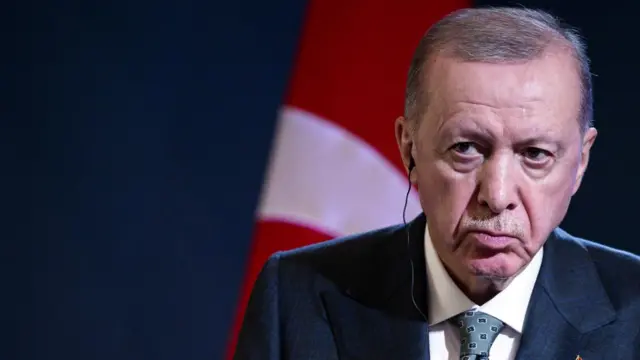
Turkey is ready to host ceasefire talks between Russia and Ukraine, the country’s president tells French President Emmanuel Macron.
Recep Tayyip Erdogan’s announcement, reported by his presidential office, follows Russian President Vladimir Putin’s proposal to hold “direct talks” with Ukraine in Istanbul.
This is not the first time Turkey has been host to Ukraine-Russia discussions, the delegations have previously met in Istanbul.
Our US State Department correspondent Tom Bateman attended one such meeting back in 2022 and said the meetings place “a bigger spotlight on Turkey’s role”.
Ukrainian President Zelensky says Ukraine “expect Russia to confirm a ceasefire – full, lasting, and reliable – starting tomorrow, 12 May, and Ukraine is ready to meet.”
Pope Leo calls for ‘just and lasting’ peace in Ukrainepublished at 12:2512:25
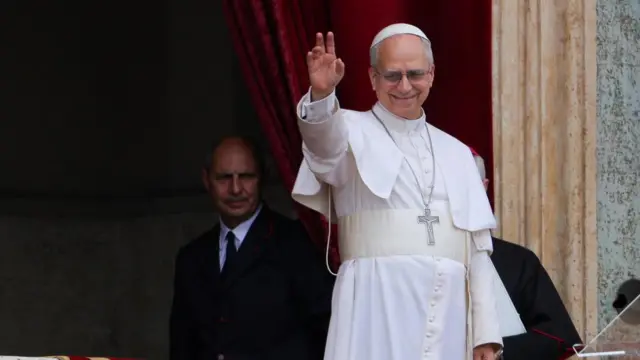
Turning our attention to the Vatican briefly, Pope Leo XIV has called on the world’s major powers for “no more war” in his first Sunday message to crowds in St Peter’s Square since being elected.
The new pontiff, chosen on 8 May, called for an “authentic and lasting peace” in Ukraine, as well as a ceasefire in Gaza and the release of all Israeli hostages.
You can read more about Pope Leo’s first Sunday blessing and address in our news story.
Russia resumes military operation at end of three-day truce
Russia says its troops are carrying on with their “special military operation” now that the three-day ceasefire, from 8 to 10 May, has ended.
This comes after Ukraine urged Russia to agree to a 30-day ceasefire starting tomorrow.
Russia’s defence ministry also says Ukraine broke the three-day ceasefire more than 14,000 times – the ceasefire was unilaterally proposed by Russia, but Kyiv rejected it, calling it a “theatrical show”.
Earlier, Ukraine has also accused Russia of breaking the truce, saying their troops were responding “appropriately”.
Ukraine hasn’t understood Putin correctly, Russian foreign ministry spokeswoman says
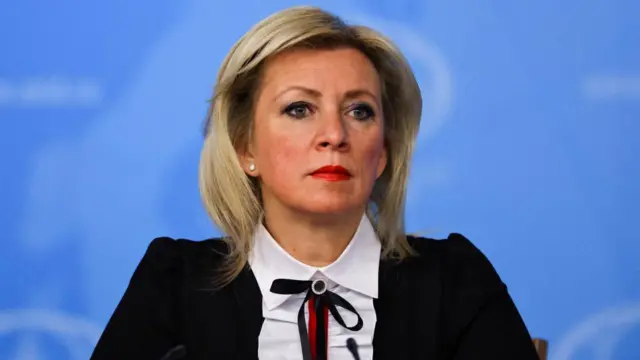
We’ve just heard a new response from Russia after Ukraine’s Volodymyr Zelensky commented on ceasefire and peace talks.
Russian foreign ministry spokeswoman Maria Zakharova says Ukraine hasn’t understood Putin correctly.
According to her, Putin means there should first be negotiations about the “root causes” of the conflict, and only then can talks about a ceasefire happen.
Elsewhere, Russian foreign ministry ambassador-at-large Rodion Miroshnik says on Telegram that Zelensky proposing a ceasefire is only to rearm and regroup.
Putin is saying no to ceasefire demands, without actually saying no
President Zelensky’s statement made in response to Vladimir Putin’s offer of talks is somewhat ambiguous: “and Ukraine is ready to meet” instead of “and then Ukraine will be ready to meet” after Russia ceases fire.
But then Andriy Yermak, head of the Ukrainian president’s office, introduced more clarity on Ukraine’s position in a statement of his own: “First a ceasefire for 30 days, then everything else.”
Yet again, we have heard Vladimir Putin say no without saying no.
The coalition of the willing and Ukraine are demanding a ceasefire to start on Monday without preconditions. Putin offers talks with Ukraine to start on Thursday without preconditions. Not the same thing.
Putin put on the spot by 30-day ceasefire plan, professor says
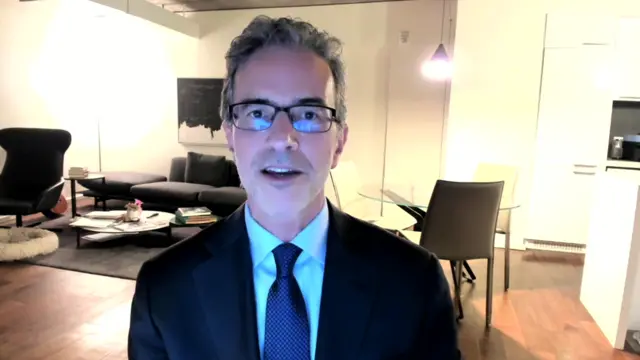
Commenting on Putin’s proposal for direct talks on Thursday, a professor of political science at the University of California tells the BBC his move comes from “the desire to avoid being forced into a ceasefire”.
Daniel Treisman says Putin was “put on the spot” by the 30-day ceasefire call made by Ukrainian President Volodymyr Zelensky and European leaders yesterday.
“Putin is doing his usual judo move and trying to get out of the thing he is trying to avoid by proposing something else,” he says.
Ukraine reports numerous Russian drone attacks
The Ukrainian military has reported numerous Russian drone attacks the day after Vladimir Putin’s Victory Day three-day ceasefire ended.
Overnight, Russia attacked Ukraine with 108 drones, the Ukrainian air force says.
This is slightly fewer than the average number immediately before the start of the ceasefire, but means Russia has resumed attacking Ukraine with Shahed strike drones.
According to the Ukrainian air force, 101 of the drones were intercepted or fell without causing any damage.
First ceasefire, then everything else, says key Zelensky aide
A key aide to President Zelensky has said Russia must agree to a ceasefire before direct talks can begin between the two countries.
“First a ceasefire for 30 days, then everything else. Russia must not camouflage its desire to continue the war with verbal contortions,” Andriy Yermak, the head of the Ukrainian president’s office, said on social media.
“Ceasing fire is the first step towards ending the war, and it will confirm Russia’s readiness to end the murder.”
Macron says ceasefire needed now so ‘talks can begin’
French President Emmanuel Macron has responded to Zelensky’s earlier comments, saying “a ceasefire is needed now, so that talks can begin”.
Macron says he and other European leaders, along with US President Donald Trump, yesterday clearly proposed an unconditional 30-day ceasefire starting on Monday.
He says Zelensky has agreed to it, and the countries are expecting “an equally clear response from Russia”.
“There can be no negotiations while weapons are speaking,” he says.
A cautious and diplomatic response
Ukraine’s President Zelensky has given a cautious and diplomatic response to Vladimir Putin’s late-night offer of direct talks in Istanbul next Thursday.
The Ukrainian leader might have been expected to slam his opposite number in Moscow for not committing to a 30-day ceasefire, as demanded by Kyiv and its Western allies.
Instead, writing on X, formerly known as Twitter, Zelensky called it “a positive sign that the Russians have finally begun to consider ending the war”.
It’s hard to tell if that is really the case but this is as much about optics as anything else. Neither Putin nor Zelensky want to be seen by Donald Trump as the obstacle to peace.
President Zelensky added that Ukraine expected Russia to confirm it would abide by that 30-day ceasefire, starting on Monday.
French President Macron meanwhile, who was here in Kyiv yesterday, said today that Putin’s proposal was ‘not enough’ and that the Russian leader was buying time, ‘looking for a way out’.
President Trump’s reaction however, was markedly upbeat. Writing on his Truth Social online platform, he hinted once again that this war was close to ending. He wrote: ‘A potentially great day for Russia and Ukraine!’.
After yet another air raid warning here this morning, that is not how it feels in Kyiv.
Zelensky says Ukraine is ready to meet Putin for ceasefire talks

We’ve just heard from Ukrainian President Volodymyr Zelensky, who says Kyiv is ready to meet Russia for ceasefire talks.
Without responding directly to Putin’s invitation for talks in Istanbul, he says: “It is a positive sign that the Russians have finally begun to consider ending the war.”
He adds: “The entire world has been waiting for this for a very long time. And the very first step in truly ending any war is a ceasefire.”
“There is no point in continuing the killing even for a single day. We expect Russia to confirm a ceasefire – full, lasting, and reliable – starting tomorrow, 12 May, and Ukraine is ready to meet.”
As sirens sound in Ukraine, could Trump throw Putin a diplomatic lifeline?
What Ukraine badly needs from its allies is an uninterrupted flow of air defences to fend off the ever-growing numbers of drones and missiles being fired across the common border at Kyiv and other major cities.
Shortly after dawn today, Sunday, we were woken by an air raid alert and sirens went off as more Russian drones were launched.
On 9 May the US Embassy in Kyiv issued a warning to its citizens that there was “a significant risk of air raids in the coming days”.
One of the biggest concerns is that the Kremlin may launch another ‘Oreshnik’ hypersonic ballistic missile like the one its forces fired at a factory in Dnipro last November.
With speeds approaching ten times the speed of sound, Russia boasts that this missile is ‘unstoppable’.
So now the key question is what President Trump does next and this could go either way.
He could decide that his opposite number in Moscow is simply stringing him along, finding one excuse after another not to agree to a ceasefire.
Or, given his historic warm relations with Vladimir Putin, will he throw the Russian leader a diplomatic lifeline and put pressure on Ukraine instead to sit down in Istanbul and listen to Moscow’s demands?
Russia and Ukraine still far apart on peace talks
President Putin’s late night offer of direct talks with Ukraine in Istanbul next Thursday is unlikely to be welcomed in Kyiv.
First off, he has not agreed to yesterday’s demand by Ukraine and its allies for a 30-day ceasefire starting tomorrow, Monday.
Instead, Putin wants to address what he calls ‘the root causes of the conflict’.
From his perspective, that means Ukraine’s unacceptable ambition to be part of a prosperous, democratic Europe rather than returning to Moscow’s orbit and become a pliant, satellite nation like Belarus. He will also want a firm undertaking that Ukraine will never join NATO.
Moscow demanded yesterday that before any ceasefire can start the West must stop arming Ukraine. That of course would leave this country that much less able to fend off Russia’s gradual advances on the frontline or worse, a new full-scale offensive to take more land.
Putin sidesteps European leaders’ ultimatum
European leaders delivered an ultimatum to Vladimir Putin. Agree to a 30-day unconditional ceasefire by Monday or face massive new sanctions.
In a late-night statement delivered in the Kremlin President Putin criticised European powers which he said spoke with Russia in a boorish manner and with the help of ultimatums.
He sidestepped this particular one.
Presenting instead his own proposal: direct negotiations with Ukraine in Istanbul next Thursday – he said he would speak to President Erdogan of Turkey later today to facilitate such talks.
Crucially, the Kremlin did not sign up to a 30-day ceasefire.
Although, he didn’t exclude the possibility that if talks in Istanbul went ahead they could lead to, what he described as, “new ceasefires.”
The Kremlin event was expected to be a press conference about recent World war Two commemorations in Russia – but Mr Putin took no questions. And left the hall after delivering his statement.